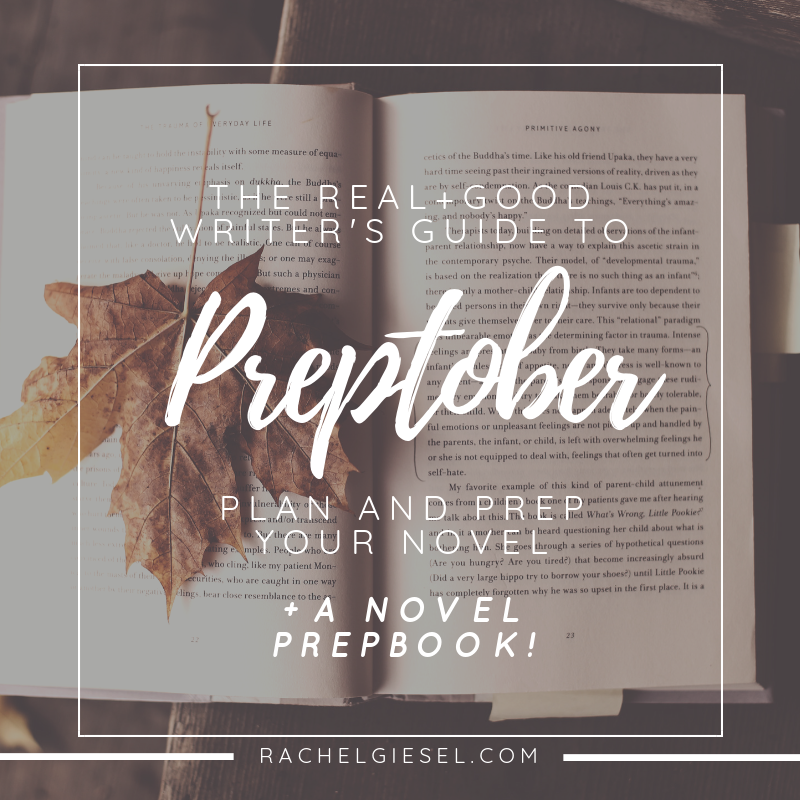When you're ready to take writing seriously, you've got a mission. You have stories you're ready to tell, and you're determined to get them out into the world and into the hands of readers.
When you're ready to take writing seriously, you have to shift your mindset. You can't think of writing as something you do when you're feeling inspired, or when the muse decides to grace you with her presence, but something you do because you must.
When you're ready to take writing seriously, you have to master your writing brain and make it work for you. You can't just let it flounder about all willy-nilly. You decide to create a mission, act on it, and then you do it!
When you're ready to take writing seriously, you create Your Writer's Business Plan: a detailed action-plan to set your goals, earnings, investments, intentions, and mission in one organized place!
“It’s time to overcome your resistance to the idea that, as an author, your job is no longer just to write (if it ever was). If you want to turn your passion for writing into a business, you’ll need to have a solid and strategic plan in place.”
Read Kimberly's author business plan here!
In 6 important sections, we're going to figure out what your Writer's Business Plan looks like. We're going to dive into your mission, vision, and goals, your brand personality, style, and how you portray yourself, your products (aka the stories) and the production process to get them done, the earnings and investments you'll make for your writing, and your ongoing education and personal growth strategies to be an even better writer than before.
P.S. I made you a workbook!
Get your Writer's Business Plan on paper!
Print yours out for free and fill it in as you read this post!
Are you ready?! Let's dive into your Writer's Business Plan!
1 | Writer Summary:
Mission statement/your DNA
To start your Writer's Business Plan off, you have to define who you are, what you do, and why you do it. This encompasses your goals, your unique selling propositions, your vision, your intentions, your plans—everything! This sums up everything that makes you a writer in one succinct little piece. Think of this as your elevator pitch.
A great way to find your Writer's Business Mission Statement is to use your Real+Good Writer's DNA statement. In The Writer's DNA course, you learn exactly how to figure out who you are, what you read, what you write, what inspires you, how you write, why you write, and how to put it all together into one succinct DNA statement.
If you haven't discovered your DNA yet, go get started right here!
brand culture and style
You might think that because you're a writer, you don't have a brand. But this is narrow thinking.
While you won't market yourself in the same way as a big corporation, you do still have to brand yourself as a writer. You won't be looking at creating a typical brand, but instead focusing on personality branding. You are a unique human that thinks a certain way, acts a certain way, speaks and writes a certain way. You wear certain clothes. You're attracted to certain colors. You pay attention to certain things. When you think about your brand culture and style, you choose to think about all these components of yourself and how to present them to the world.
Because in our culture, we don't care if you just tell us you wrote an amazing book. We have to know you, like you, and trust you. Because you've got to market your books and you have a distinct style of writing and all that, but you're also a human. And people like and connect with other humans. We want to be your digital internet friends. We want to see the human behind the words.
What you're defining here, is how to present yourself to the world.
Think about yourself in relationship to the world. How do you want the world to perceive you? What traits will you show? What does it mean to be you? And how does this connect to you overall missions for your writing?
Then, figure out how you will reveal this self. How will you connect with readers, and other writers? Will you post on Instagram? What kinds of things will you post? What about Facebook? Twitter? Where will you present yourself, and how will you do it?
Think of this as kind of an expansion of your Writer's DNA, presented in a public forum. This is you as seen by the rest of the world.
ideal reader
You have many reasons why you write. (And hopefully you've explored many of them!). But one of your most important reasons is to find readers who are affected by your beautiful words, who are changed by your stories, who see the world differently because of something you wrote.
Your readers are going to come in all shapes and sizes, but you DO have an ideal reader, and your ideal reader is who you serve.
Figure out who would be most interested in your stories. What gender are they? How old are they? What do they like to do for fun? How do they perceive the world? What beliefs do they hold about the world? What do they want out of life? How can you best speak to them?
Create your ideal reader profile just as you would create a character sketch. Get to know your ideal reader intimately. Give her a name.
And write to this reader. Expect her to be waiting to get a copy of your book in her hands. She wants to hear your voice. Write to her.
2 | Writing Objectives:
VISION
Your vision is your ultimate level of success. What does the perfect writer life look like for you? What do you do as a writer? What do your words do for your readers? What messages do you share with the world?
Think of your vision as your BIG and beautiful and crazy writer dreams in a succinct statement. You're allowed to think large and wide because this is your hopes and dreams!
Goals
You have plans with your writing. You have books you want to publish, manuscripts you want to revise, stories you want to submit, drafts you want to finish. You have readers you want to connect with, Twitter chats you want to attend, writing classes you want to enroll in.
Let's get all your plans out onto the page.
You may want to brainstorm all your goals in a big, messy mind-map first, just to see what you're working with. Dump all your goals out.
Once you've got all your ideas, look for your themes. As Angela Ackerman says, "While all of these [goals] are important and deserve your attention, some need more attention than others, depending on where you're at in your writer journey. [...] Be honest with where you are and focus on the most important areas. You have plenty of time to get to everything else. The goal here is just to not spread yourself too thin."
“If you are just starting out in your writing journey, education is going to take a priority. If you have a bajillion manuscripts ready to go out the door, publishing is going to take a priority. If you just published a book, marketing will be a priority. ”
Realize where you are in your writing journey, whether that's paying attention to drafting, publishing, or marketing. Accept that. You don't need to do it all right now. Consciously decide to focus your attention where you need it most at this point in time.
Then, you'll want to categorize these goals depending on where your priorities are, what the difficulties of the goal are, and how long it will take you to achieve it. Categorize your goals into four different sections: Lifetime, Annual, Quarterly, and Monthly. (It may be helpful to highlight with different colors, depending on the category. #Organization).
Once you've narrowed down what you're doing and when, you'll want to transform those thoughts into more definite goals that you can work towards, using The Real+Good Goal Formula. You'll want to make sure they're SMART+HARD Goals that set you up for actionable steps and realistic success. (P.S. There's a whole workbook for you there to put this into action!).
Then, list your Real+Good (SMART+HARD) Goals in your Writer's Business Plan depending on the category they belong. This will keep you focused and on track to accomplishing your writing dreams.
*Pro-Tip: Write your goals on Post-It notes so you can easily move them from section to section!
3 | Production:
By this point (once you've set up a Real+Good Goal and unpacked your Writer's DNA) you should have a pretty good idea as to how you're going to get things done.
If you're not sure, we're going to figure it out.
NITTY-GRITTY SCHEDULE
You are setting into stone what you're going to do, how you're going to do it, when you're going to do it, and how you'll measure success in doing it or not.
This is the nitty-gritty of getting it done. What does that look like? How many words will you write? How many pages will you edit? What needs to be completed in order for you to reach your goals (e.g. researching agents, submitting stories, building a readership through engaging on social media, writing the freaking story)? How do you complete those things?
This is your work schedule. What days of the week will you write? How many hours per day/week/month? When will you make time for writing? Where will you be located? Will you focus on writing on Mondays, and editing on Wednesdays? Perhaps, you'll focus on social media on Thursdays, novel writing on Saturdays, and short stories on Sunday? Perhaps you always make Sunday a reading day. Or, you always doing homework from your writing class from 8-10pm on weeknights. This is the when of getting your goals completed.
If you want some help with this one, learn how to command the muse to come on your time when you set a writing schedule that sticks.
Products (aka stories)
Businesses sell things. They have products and services that go out into the world. In your Writer's Business Plan, your products are your stories.
This is where you define your work-in-progresses (WIPs). Define what they're about, what genre, what type, what stage they're in. Give the most important details about what this is. What are your WIPs?
Real+Good businesses diversify their income, having a variety of products of different price ranges. You'll want to diversify your stories, having stories in different types and phases too. You might have a couple novels in the works, a few short stories, a TV show, some essays. (P.S. If you want some help with this, make sure to check out my amazing friend, E.M. Welsh, who is a BOSS at teaching how to master multiple forms of storytelling #LoveHer!). Use this as the centralized place to keep all the stories you're actively pursuing.
Note: This is NOT all your story ideas ever. This is NOT your brainstorming wish-list. Instead, this is only the stories that are actively in the works and you're not going to give up on anytime soon. These stories may be finished, need revision, or still need to be written (the drafting/revising stage isn't a deal-breaker). What's important is that these are where your attention is and where it's going to stay. Ask yourself: What are your priorities right now?
It may be helpful to give yourself deadlines for when to complete these stories. Used in conjunction with your goals and your production schedule, you can plan out your year of what you're going to get done and when.
4 | Market Analysis:
OTHER WRITERS + STORIES
Businesses will often compare what they're doing with others in the same industry attempting to do the same thing. As a writer, you should do this too. You want to consider who your "competitors" are, also known as your influences, similar writers who are doing awesome things that you can model.
You want to think about this from a story standpoint AND a marketing standpoint. We actually spend a whole module talking about what you can learn from your favorite authors in The Writer's DNA course, if you need a good place to get started. But, for the basics:
Figure out how their story works. What makes it awesome? Why are those characters so great? How did they weave the plot together? How did they effectively communicate their message?
And look at their author life as well. How do they present themselves to the world? What do they do to foster a sense of community with their readers? How do they use social media? A website, or a blog? How do they market their books and themselves?
When you consider these things, look to what their strengths are, what they're doing very very very well. Look at what their weaknesses are, where they could improve. Think about what aspects you can apply, and improve upon, in your own writing life, in a way that makes sense for you.
But seriously, we're much better off if we all work together instead of against each other. Pay attention to other writers and other books that are doing what you intend to be doing, and learn how to improve and expand from this research. But use it to lift us all up together, not to put someone down. #WritingCommunity #WriterFriends
5 | Financials:
Earnings
You do have to earn income from somewhere. That's just a fact of life. And unfortunately, for the time being, that income is likely not coming exclusively your writing life.
And that's okay.
It's going to be damn near impossible to predict how much you'll earn from your writing. And until you've got a book on the shelves, it's damn near impossible to influence how much you'll make. So, we've got to reframe your understanding of earning money.
You can aspire to be a professional writer, but you're not going to wake up tomorrow with a million dollars in your bank account and an endless supply of time to focus exclusively on writing your stories (and if you do somehow, please tell me all your secrets). We can work towards that. But until then, you have to find something to pay the bills. This would be your day-job, and for now, you have to like it enough to allow it to fund your life so you can get those necessary words on the page.
Think about your day-job as a tool that allows you to write. Your day-job pays the bills so you don't have to pressure the writing with financial obligation, and you can focus on getting the writing right. Your day-job exposes you to interesting characters and story ideas and world-views on a daily basis, fueling your creativity. Your day-job is helping you achieve your writing goals, because without it, you wouldn't have the energy or the capital to spend any time on your writing at all.
(We're going to talk more about the relationship between writing and money on this blog very very soon. Stay tuned.)
When you make your Writer's Business Plan, you want to include the income from your day-job. Even if it has NOTHING to do with writing. Your day-job funds your life, and your life includes writing, and so you need to take into account the income you are receiving. Everybody's gotta start somewhere, and right now, your day-job is supplying you the capital to jumpstart your writing life.
When you do start to earn money from your writing (whether that be through publishing short stories or selling your novel), you'll want to include that income too.
But you don't earn just money from writing. Money is a necessary piece to writing (and life), but it isn't the end-all-be-all. You've got to consider what else you earn with your writing. You can "earn" 100 rejection letters. You can "earn" 20,000 words. You can "earn" readers, or subscribers to your blog. You can even "earn" inspiration.
Here's the short list of what you can "earn" with writing:
Pages read
Inspiration
Story ideas
Rejection letters
Word on the page
Pages edited
Readers/followers/subscribers
You will reap a profit on the effort your put into your writing life. But you have to define specifically what that profit is for that specific goal. It doesn't necessarily have to be money, and it shouldn't always have to be. Writing is more than just that. Think about what you would like to "earn" in your writing life, and go for those profits.
You can't control when a publisher finally accepts your manuscript or how many copies they decide to print. You can't control whether a literary magazine accepts your story or not.
But you can control a lot of other things in your writing life.
Focus on what you can control—pages written, books read, stories submitted. Reframe your mindset to seek these kinds of profits. They're just as valuable (if not more valuable) than the money itself.
expenses/investments
As a business, you will earn some things, and you will also spend some things. You're going to have money (and other things) coming in, and you're also going to have money (and other things) going out.
And they probably won't be equal.
To write, all you need is a pen and a piece of paper. It's not a costly investment. But you do have to buy said pen, and said paper.
You also might have a lot of other expenses.
Here's the short list of what you spend with writing:
Books (Let's be real: We writers need a LOT of books!)
Submission fees
Online courses
Workshop classes
Writing retreats (i.e. airfare, hotel, food)
Writing conferences (i.e airfare, hotel, food)
Marketing and publicity
Digital necessities (i.e domain name, website hosting software, email software)
Time (this is a hidden cost that's actually very expensive!)
Materials to write (i.e. notebooks, pens, laptop, printer, printer paper)
Writing software
Editor
Writing Coach
Energy (it takes a LOT of work to put your soul on the page!)
At different points in your writing career, you'll need different things. And they'll likely cost you. Those expenses add up. Make sure you plan for them so when the right opportunities arise, you're ready to go. You don't want to miss out on a course you're dying to take or the next AWP conference because you didn't factor those into your Writer's Business Plan budget.
These expenses also require a bit of mindset shifting as well. Yes, many of them are things that are going to dig into your wallet. But you're not throwing money away. You're investing in yourself and your writing career. If you want to grow, you have to put in some work. You may invest in books, courses, workshops, conferences, an editor, a coach. It might cost you a bit up front, but if it helps you accomplish your writing goals and transform you into the writer you want to be, it's worth it.
Choose to consciously invest in yourself and your writing in ways that will push you towards your achieving your goals. What will you invest in?
6 | Education + Growth:
EDUCATIONAL + PROFESSIONAL development
You will NEVER know everything there is to know about writing. Instead, strive to be a constant student of the craft, always seeking new tips and ways to grow. Build this component into your business plan to make sure it takes a priority in your writing life.
But when you learn, do NOT attempt to learn everything all at once. Do NOT allow yourself to get lost on Pinterest or a writing blog (even this writing blog) in attempt to absorb ALL the information about writing you could ever possibly need. It won't do you any good, and you'll overwhelm yourself with information paralysis.
Instead, be deliberate, and conscious about what you choose to learn. Consider what you need to learn about writing right now. Perhaps it's revising your novel, or submitting to literary journals, or creating the best writing life for yourself. Whatever it is, choose it wholeheartedly. Focus your attention there. When you know what you're going after, you can research and read and enroll in a class and talk with others all you want. You're investing your attention here. Learn it and master it. Then move on.
Approach the next topic with the same vigor and tenacity.
So, what do you need to learn right now? How will you grow? What will you focus on learning?
When you choose to learn and grow, there are a wide variety of methods you can take. Consider craft books, online classes, workshops, writing groups. Look to blogs, Pinterest, fellow writers, writing retreats, conferences. Get what you need in the method that makes the most sense to you.
connection with other writers
Writing doesn't have to always be a lonely endeavor. And it shouldn't be.
When you're stuck in the middle of a plot hole and you don't know what to do, it's amazing to have another writer be your springboard for ideas to get you back on track.
When you've finished your story and you're ready for critique, it's amazing to have another writer give you feedback on your WIP.
When you just need to talk to someone else in this world who gets this whole writing thing (regarding how sometimes you feel crazy talking to your characters as real people, or how it really really sucks when you get rejected, or how you just don't want to work on your novel but you know you should),
it's amazing to have a fellow writer to turn to who can hear you out and share your feelings. Make a plan to connect with more writers. We're all in this crazy journey together, and we should work together to reach our goals. (Again, #WritingCommunity).
You can connect with writers in your town by finding local writer's groups, MeetUps, or even open-mic nights.
The beautiful thing about the internet is that you don't have to find writers in your town, because you can talk with writers all over the world from the comfort of your own couch. You can find writers on social media using various hashtags, Facebook groups exclusively for writers, Twitter chats where you can discuss writing weekly, and online writing communities for feedback.
Make a plan to participate in the writing community. Say "hello" to a writer you admire, or one that you don't know at all. Make some writing friends. We can do this, together!
Armed with your Writer's Business Plan, you will have set yourself up for writerly success. You know what you want, where you're going, how you're going to get there, and how you're going to improve yourself as a writer (and human!) along the way.
If you haven't already, don't forget to get started with your Writer's Business Plan with the free workbook! Get it below!
Happy Writing!
♥
What does your writer's business plan look like? How do you approach the various aspects of your writing life and goals?















